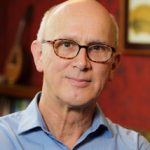
In a few months the presidential primaries begin, and not long after that candidates for lesser offices, from Congress down to city council, will be out and about, refashioning themselves as quickly as the political winds shift. They will tell the voters what they think the voters want to hear and will try to make themselves as palatable as possible. This is the American way.
Then, on the first Wednesday after the first Monday in November, we will find the election results in the morning paper and will be able to echo Clare Booth Luce, who, many years ago, when asked by a reporter whether there “were any anomalies in the election,” replied, “Yes, and quite a few of them were elected.” This too is the American way.
How refreshing it would be if a few candidates, whether for high office or low, launched their campaigns the way Hilaire Belloc launched his in 1906. He stood for Parliament for the seat in South Salford, on the border of Manchester. Among the voters were Irish Catholic immigrants, but they were outnumbered by Methodists and Congregationalists. Belloc’s staunch Catholicism was not in his favor in this constituency; besides, the Temperance Movement was strong in the area, and he was known for poems in praise of wine.
The first public meeting of Belloc’s campaign was held in the school associated with the local Catholic cathedral. His campaign manager and friendly priests urged Belloc not to mention his religion, lest he alienate Protestant voters. Belloc, giving their advice the consideration it was due, stood before the packed audience and began his remarks this way:
Gentlemen, I am a Catholic. As far as possible, I go to Mass every day. This [taking a rosary from his pocket] is a rosary. As far as possible, I kneel down and tell these beads every day. If you reject me on account of my religion, I shall thank God that he has spared me the indignity of being your representative!
A moment of stunned silence, then vigorous applause. A few days later (the British did not drag out electioneering), Belloc was elected. His candor had not hurt him.
I cannot imagine any American politician, running for any office in 2008, beginning his campaign the way Belloc began his. First, most Catholic candidates probably do not even know how to pray the rosary, and that is because most Catholic candidates are nominal Catholics. (Do not embarrass them by asking them to name the Sorrowful Mysteries.) Second, those candidates who do know how to pray the rosary probably would never think of “intruding” their religion into the public square. Like most Americans, they think religion ought to be a private matter, and the more private the better.
For my part, while I want to know what policies a candidate supports, I want even more to know from what principles he develops his policies. His principles tell me more about what to expect from him than does a laundry list of policies. Laundry lists change; principles (good or bad) perdure. The most basic principles are religious. I would tend to trust a candidate who pulls a rosary out of his pocket and explains why he prays it. I would be less willing to trust one who would be embarrassed to be found with a rosary.


